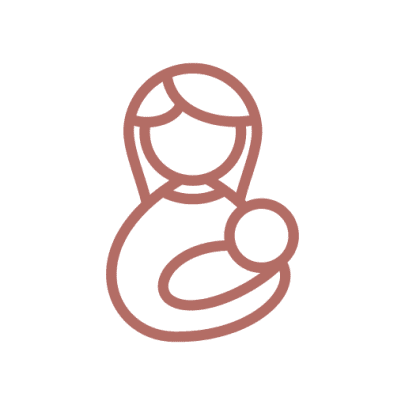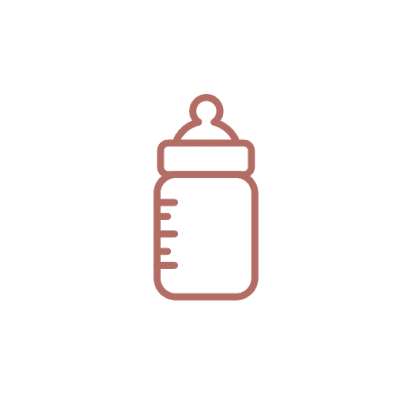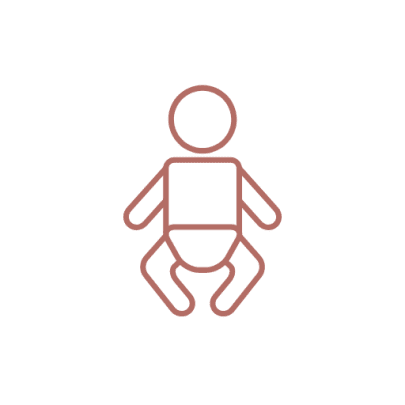Myth vs Fact: Newborn sleep
Our guest author Laura Peacey will share below some newborn sleep myths she’s encountered in both her own parenting journey and also professionally as an Infant and Child Sleep Consultant and replace them with facts.
————————–
“Don’t worry, babies need to air their lungs,” was the unsolicited comment from a supermarket stranger to the Mum of a crying newborn.
Once you have your baby in your arms everyone from your neighbour, to your Great Aunt, to the man behind you in the supermarket queue seems to have some well-meaning advice for you.
Unfortunately these “tid-bits of wisdom” aren’t usually that helpful or even have any scientific truth to them.
Myth number 5: Never wake a sleeping baby!
What nonsense. Professionals (think: lactation consultants, midwives, paediatricians, Plunket nurses etc) often advise to wake a sleeping baby to ensure they get the calories they need for growth and development. Surely if there were health concerns around this, or evidence of damage from waking a sleeping baby, the peer-reviewed scientific studies would have found something by now and we wouldn’t continue getting advice from our baby’s health professionals to wake them when needed.
Fact: Waking a baby can help them get enough milk feeds.
Fact: Waking a baby can help balance day and night sleep.
Fact: Waking a baby to go pick up your toddler from kindy is ok.
Fact: If you understand the value of protecting your baby’s sleep, you may like to wake your baby after a short morning nap, so you can fit a second longer nap in before school pick up later in the day.
Fact: Waking a baby so you can meet other Mum’s for coffee and talk to another adult is ok.
Myth number 4: Give baby formula if you want them to sleep through the night
Gah! Plenty of breastfed babies sleep through the night. If your breastfed baby isn’t sleeping through the night and you’d like them to, then my advice is to focus on increasing day feeds and working on sleep issues… not switching to formula on a whim. That will likely disrupt your baby’s digestive system and create more wake ups.
Fact: Formula is a highly regulated product and we are so blessed to have this as a healthy option.
Fact: Giving your baby formula can help your mental health if breastfeeding is stressing you out.
Fact: Healthy breastfed babies can sleep just as much as healthy formula fed babies.
Fact: The hormones made when you breastfeed actually help you get to sleep faster after the feed so even if the actual feed takes a little longer with the breast compared to giving a bottle you are more likely to fall asleep quickly once baby is asleep.
Fact: Breastmilk is the ideal food for your baby and is digested quicker than formula. Gastric half-emptying time of breastmilk is 45-48 minutes compared with formula 65-78 minutes = Not a whole lot more time for sleep to happen before another feed would be needed anyway.
Myth number 3: Swaddling is cruel
Babies arrive into this world having come from a very tightly packed ‘womb room’. They are not used to having full use of their arms and this can startle them. During what is colloquially called “the 4th trimester” (0-3 months old) our focus should be to recreate the sensations of the womb to help our newborns to transition to this big world. If anything, we could be saying “not swaddling is cruel” (don’t worry, that’s false too). Let’s move on from putting adult emotions onto our babies. You may not want to be swaddled for sleep, but they are babies and swaddling is an ancient practice that is proven to calm newborns’ nervous systems and make it easier for us to help them settle to sleep.
True, some babies cry as you go to swaddle them. This is more likely due to them being overtired than an actual hatred of being wrapped. For babies who fuss when swaddled, try swaddling earlier in their awake time and make it firm around the arms and loose around the hips to get the most effective and safe swaddling benefits.
Fact: Swaddling prepares a baby to notice your other efforts at settling them, meaning they calm and settle faster when swaddled.
Fact: Swaddling isn’t to stop your baby crying, it’s to stop their Moro (startle) reflex from keeping them awake.
Fact: Unsafe swaddling has an increased risk of SIDS, yet swaddling in a safe way has no increase in SIDS risk. Learn how to do it right! (Message me @peacey_sleep)
Fact: Most babies sleep longer when swaddled compared to unswaddled.
Fact: Swaddling your baby is totally your choice but I highly recommend it.
Myth number 2: Sleep your baby in the light to teach them day from night
Sure, you can do this in the first three weeks or so and it might help a bit, although newborns feed so frequently and fall asleep again so quickly that day and night become a little irrelevant to new parents for a while. After 3 weeks I’d recommend setting up your baby’s sleep space to promote ideal sleep, including darkening the room for cot or bassinet naps (contact naps are still really common though!). Beyond 8 weeks, sleeping in the light won’t help at all and will just make it so much harder for your baby to have restorative naps, which may make them overtired and eventually lead to disrupted nights, exacerbating the problem you were trying to fix in the first place: day/night confusion!
Fact: The sleep hormone, melatonin, can only be produced in the dark.
Fact: Your baby has the ability to fall asleep in the light but will likely struggle to stay asleep for long.
Fact: Food, light, and social interaction during your baby’s awake window will teach them day from night.
Myth number 1: Just leave your baby to cry to sleep, they’ll learn faster.
Nope nope nope. A newborn is neurologically unable to calm themselves from a worked-up state to bring on sleep themselves (aka. self-soothing). Parents need to read their baby’s cues and provide hands-on support to bring calm to a crying newborn. Somewhere between 12 and 16 weeks old (it’s different for each baby) a baby’s systems become developed enough to learn the skill of soothing themselves from a stressed state although not all parents want to test this out.
Fact: Newborns can fall asleep unaided but need loving support to calm down when upset.
Fact: “airing” bubs lungs by letting them cry is so not necessary for good sleep habits to form.
Fact: Hands-on sleep support through the newborn months (0-3 months old) creates a much more regulated older baby who is far more likely to learn self-settling quickly.
So there you have it! 5 newborn sleep myths debunked!
Hopefully, in time, these common myths will become far less common. Some of my favourite work as a sleep consultant is with Mums of newborns! The changes we can make as we meet your newborn where they’re at is life-changing. Some tweaks to bubs environment, awake windows, and sleep associations, along with equipping you, the parent, with hands-on settling tools leads to massive improvements in sleep for the whole family.
If you’re having trouble working out how best to support your little one’s sleep needs, get in touch for a free enquiry call to chat through your options with me. Also follow me on Facebook and Instagram @peacey_sleep
💜 Laura Peacey









